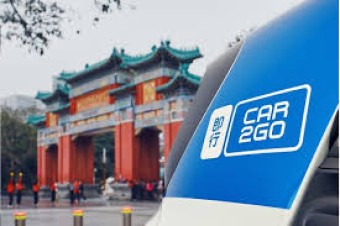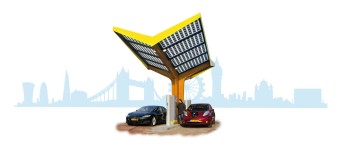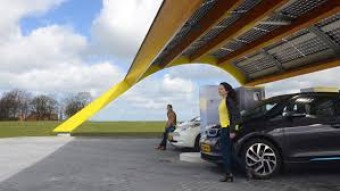Taxi & Mobility Intell Update 2017 – presentations available
THURSDAY 4 May
Introductory keynote -A view towards the horizon:
“The mobility landscape today and a view towards the horizon.”
Shwetha Surender, Program Manager Mobility,Automotive &Transportation. Frost & Sullivan, London.
surender – Taxi and mobility update
FutureTrends I:The City in Charge!
Ivo Cré,Deputy Director, POLIS Network, Brussels:“The city’s growing importance.”
ivo cre – Polis-4May_TaxiUpdate2017
Prof.Dr. Cathy Macharis,Vrije Universiteit Brussels; Faculty of Economic and Social Sciences & Solvay Business School; Head of Research group MOBI – Mobility, Logistics and Automotive Technology Research Centre:
“Rethinking mobility for a human city.”
Macharis-Human city_for taxi conference final
Serge Metz, CEO UNIT, Paris:“The Future of the Industry.”
FutureTrends II: Is MaaS (Mobility as a Solution) in the Driving Seat?
“The leading Role of PublicTransport in New Mobility.” Kaan Yildizgöz, Training Director, International Association of Public Transport (UITP), Brussels.
Sampo Hietanen, CEO MaaS Global Ltd,Helsinki: “Mobility as a Service – does it change the world and when?”
Alwin Bakker, Founder and CEO Resultancy.nu, Rotterdam – Consultancy in future mobility: “The Autonomous Future.”
Bakker – Taxi and Mobility 2017
FutureTrends III:Different Outlooks,Different Driving Seats?
Herwig Kollar, Taxi Deutschland eG/Board member taxi and PHV association BZP, Frankfurt. “Do we really need a new business model?”
herwig kollar- Vortrag_Brüssel
Tarek Mallah, COO NuRide Transportation,NewYork:“A changed industry needs a new business approach.”
Michel Pêtre, CEOTaxisVerts, Brussels,“Taxi-sharing : removing the barriers.”
Tomorrow’s Mobility I:Different Systems,Different Regulation?
Welcome by the Minister for Mobility and PublicWorks of the Brussels Capital Region, Pascal Smet: “The New Regulatory Model in Brussels – A Model for Europe?”
Olli-Pekka Rantala,Director-General of Services Department,Ministry of Transport and Communications of Finland.“Laying the groundwork for the Future of Mobility – Finland´s Transport Code”
olli-pekka – Laying the Ground for the Future of Mobility OP Rantala FINAL
Dirk Ritter, Section Head of the Transport Regulatory Authority,Ministry of Economy,Transport and Innovation, Hamburg/Germany:“Regulation and supervision of commercial passenger transport – necessary or not? The experience from the Hamburg practice.”
Ritter – Präsentation Taxi Brüssel2
KateToran, Director of Taxis and Accessible Services, San Francisco Municipal Transportation Agency (SFMTA), San Francisco:“A view towards the horizon from where it all began.”
toran- Taxi & Mobility Update 2017 Brussels
Meera Joshi, Commissioner/Chair of the NewYork Taxi and Limousine Commission (TLC):“NewYork’s approach to the regulation of a diverse industry.”
Simon Buggey,Transport for London (TfL).“New challenges for taxi and PHV regulation.”
buggey – Taxi and Mobility 2017 – London briefing
F R I D A Y M A Y 5
Olga Petrik,Transport analyst, Statistics and Modeling Unit International Transport Forum (ITF): “The remarkable outcome of the Lisbon mobility study.”
Levent Erdogan, CEO Karsan Otomotiv:“Environmentally-friendly and accessible city buses for the inner city.”
erdogan-Minibus Concept 2.05.2017
Dr.Michael Galvin,Head of Regulatory Affairs,Addison Lee Ltd. London.
“New business models for a changed business environment.”
galvin – taxi and mobility update 2017_version 1.0_20170501
Sonila Metushi,Manager – Mobility of People &Taxis, International Road Transport Union (IRU), Brussels: “The role and place of taxis in 2030: IRU’s Taxi of the Future initiative.”
Matt Daus, President of the International Association of Transportation Regulators (IATR): “A quick update on new regulatory accents worldwide.”
Prof.Dr. James Cooper, Taxi Research Partners,Dallas.
“Taxis: grief, acceptance and opportunity.”









